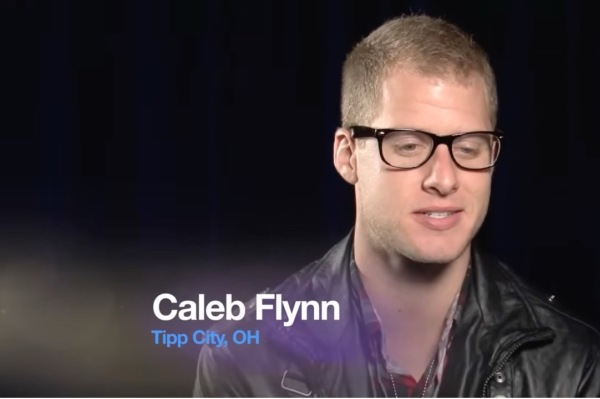What Should We Think of the Emerging Church? Part One
The "Emerging Church" has become a focus of intense evangelical interest, as the nascent movement has grown in both size and influence. While its eventual shape is not yet clear, we now know enough to draw some preliminary conclusions about the movement, its leaders, and its influence.
In his recent book, Becoming Conversant with the Emerging Church, D. A. Carson offers a penetrating analysis of this new movement and its implication. An accomplished scholar with a keen eye on the culture, Carson combines academic scrutiny with a sympathetic understanding of the motivations and cultural experiences that have shaped this new movement.
Carson, Research Professor of New Testament at Trinity Evangelical Divinity School, demonstrates a bracing understanding of our times and the cultural challenges faced by conservative Christianity. In his 1996 book, The Gagging of God: Christianity Confronts Pluralism, he offered an incisive analysis of postmodernism. In that work, Carson's primary focus was epistemology and the postmodern understanding of truth and its knowability. In this new book, Carson continues to focus on truth and knowledge, challenging the Emerging Church at the foundational level of Christian identity.
Carson begins by acknowledging the diversity of the Emerging Church Movement. Given the "porous borders" of the movement, Carson admits that he did not find it "easy to portray it fairly." Nevertheless, after a period of embryonic development, the Emerging Church Movement is now sufficiently mature to offer an understandable model of church and theology, complete with understandings of the Bible, the culture, and the Christian message.
The idea of an Emerging Church--whether understood as a movement or a "conversation"--is based in "the conviction that changes in the culture signal that a new church is 'emerging,'" Carson explains. The logic that unites Emerging Church leaders suggests that Christians must respond to the Emerging Church with acceptance and adaptation. "Those who fail to do so are blind to the cultural accretions that hide the gospel behind forms of thought and modes of expression that no longer communicate with the new generation, the emerging generation," Carson relates.
Even though the Emerging Church constitutes an amorphous movement with ill-defined boundaries, Carson is convinced that the influence of the movement is larger than its numbers would suggest.
From what did the Emerging Church emerge? The modern evangelical movement emerged in the last half of the twentieth century complete with "megachurches" and baby-boomer variations. The Emerging Church is defined over against the massive megachurch models and the seeker-sensitive approaches popular among baby-boomer pastors. The formative leaders of the Emerging Church Movement argue that they are trying to recover a primitive sense of Christian community that, while keenly aware of contemporary culture and deeply engaged with the culture, avoids the consumerism, entertainment-centeredness, and superficiality of mainstream evangelical churches.
It is significant to note that the vast majority of leaders in the Emerging Church Movement seem to have shifted from more conservative forms of evangelical Christianity to the new, more broadly defined Emerging Movement. Carson suggests that a detectable sense of protest fuels the movement. Several of the movement's leaders document their own rejection of older forms of evangelical theology and church life. Some have rejected a Dispensational eschatology, while others contrast their new understanding of the culture with a previous experience rooted in fundamentalist separationism.
Carson cites the late Mike Yaconelli who rejected more conservative forms of evangelical Christianity with a sense of intellectual and cultural condescension. Looking back at his earlier faith, Yaconelli commented: "I realized the modern-institutional-denominational church was permeated by values that are contradictory to the Church of Scripture. The very secular humanism the institutional church criticized pervaded the church structure, language, methodology, process, priorities, values, and mission. The 'legitimate' church, the one that had convinced me of my illegitimacy, was becoming the illegitimate church, fully embracing the values of modernity."
Philosophically, the Emerging Church Movement represents a repudiation of what it identifies as "modernism." While postmodernism is itself a contested category, the leaders of the Emerging Church Movement clearly understand themselves to be affected by, if not fully embracing of postmodernism.
In particular, Emerging Church leaders focus on epistemology, arguing that modernism corrupted the church by limiting its focus to a defense of propositional truth based in an unassailable philosophical foundation. The rejection of foundationalism is a central theme of emergent culture.
As Carson explains, a majority of Emerging Church leaders and thinkers hold "that the fundamental issue in the move from modernism to postmodernism is epistemology--i.e., how we know things or think we know things. Modernism is often pictured as pursuing truth, absolutism, linear thinking, rationalism, certainty, the cerebral as opposed to the affective-which in turn breeds arrogance, inflexibility, a lust to be right, the desire to control. Postmodernism, by contrast, recognizes how much of what we 'know' is shaped by the culture in which we live, is controlled by emotions and aesthetics and heritage, and in fact can only be intelligently held as part of a common tradition, without overbearing claims to being true or right."
At this point, Carson focuses on Brian McLaren, probably the most articulate speaker in the Emerging Movement. McLaren has written a small library of works promoting and defining the Emerging Church Movement. Though the movement has many formative leaders, McLaren is undoubtedly the most influential thinker among them. To a large and undeniable extent, McLaren has succeeded in branding the Emerging Church Movement.
The very nomenclature of the movement betrays a sense that evangelicalism must be cast aside in order for something new, radical, and more authentic to emerge. "For almost everyone within the movement," Carson argues, "this works out in an emphasis on feelings and affections over against linear thought and rationalities; on experience over against truth; on inclusion over against exclusion; on participation over individualism and the heroic loner." This approach produces what McLaren calls "a new kind of Christian," and a new kind of church.
Accepting the postmodern insistence that "metanarratives" are dead, McLaren argues that Christianity must develop a new way of describing, defining, and defending the gospel. A metanarrative--a unifying theory of universal meaning--is to be replaced by a far more humble understanding of truth that accepts pluralism as a given and holds all truth claims under suspicion.
Postmodernism insists that truth claims must be presented in a humbled form, without claims of universal validity, objectivity, or absoluteness.
Carson criticizes the majority of Emerging Church leaders as relying on a facile and simple antithesis--"namely, modernism is bad and postmodernism is good." He credits Brian McLaren with a more sophisticated understanding of postmodernism's dangers. Nevertheless, he also criticizes McLaren for holding that "absolutism is associated with modernism, so that every evaluation he offers on that side of the challenge is negative." McLaren may dismiss religious relativism, but Carson argues that he does not critique it. As Carson reflects, "I have not seen from McLaren, or anyone else in the Emerging Church Movement, a critique of any substantive element of postmodern thought."
In his opening chapter, Carson focuses on a workshop led by Brian McLaren at a conference for Emerging Church leaders. When asked about the issue of homosexuality, McLaren insisted that there is no good and satisfactory position for Christians to take, because all positions will hurt someone, and, as Carson explains McLaren's position, "that is always bad." McLaren also took refuge in the assumption that homosexuality as we know it today may not be the behavior or phenomenon so roundly condemned in the Bible.
In focusing on this workshop, Carson's concern is not primarily the issue of homosexuality itself. Instead, he understands that McLaren's carefully nuanced nonanswer to the question is illustrative of the Emerging Church Movement's failure to render clear answers in the aftermath of a rejection of absolute truth.
In a perceptive footnote, Carson makes an interesting comparison: "It is impossible to find in the writings of, say, Brian McLaren, an utterance akin to that of Luther at the Diet of Worms." Instead, many in the Emerging Church Movement prefer to take refuge in an either-or, both-and, and inherently ambiguous understanding of truth. All this leads Carson to ask a crucial question. "Is there at least some danger that what is being advocated is not so much a new kind of Christian in a new Emerging Church, but a church that is so submerging itself in the culture that it risks hopeless compromise?" In the end, that question can be answered only by a careful look at what Emerging Church leaders actually believe and teach. They have certainly given us plenty of material to consider.
Tomorrow: What Should We Think of the Emerging Church? Part Two
______________________________________________
R. Albert Mohler, Jr. is president of The Southern Baptist Theological Seminary in Louisville, Kentucky. For more articles and resources by Dr. Mohler, and for information on The Albert Mohler Program, a daily national radio program broadcast on the Salem Radio Network, go to www.albertmohler.com. For information on The Southern Baptist Theological Seminary, go to www.sbts.edu. Send feedback to mail@albertmohler.com. Original Source: Crosswalk.com





















